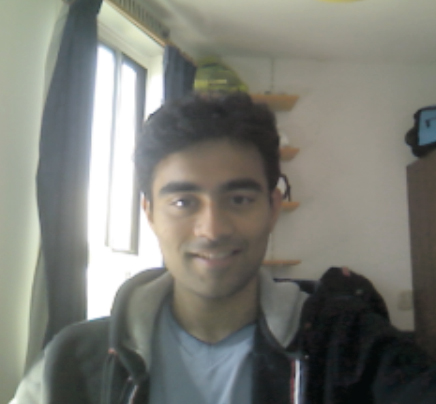“The first reason I got a PC – way back in 1995, when I was 8 years old, if I’m not wrong- was for gaming. My dad and I were at an exhibition where I saw people playing simple computer games, like Super Mario Brothers, on PCs, and I set about convincing my father that he should get my a PC.
He was nice enough to be persuaded, and soon I had my first computer—a 100 MHz Pentium 1. I never saw this computer as a tool to communicate or run other software, but just as a platform for gaming.
Since a young age, I’ve been very interested in cars, automobiles and racing. I wanted to use my PC to play graphics-intense racing games but found that my current system was not up to the challenge. That’s when I started to learn more about how computers worked—about graphics cards, RAM, disk space, etc. As video games became more sophisticated, so did my understanding of computers. Soon I was able to build custom PCs from components, and, I had connected a simulation steering wheel, brake, and gas pedal to my computer, so my PC allowed me to feel like I was really racing.
Nowadays my online activities are relatively minimal. Of course I use Skype for staying in touch with my family and friends back in Chenai, India. I do use some social networking sites, but really only for networking and staying in contact with people. I don’t like putting a lot of information out there and risking my sense of privacy.
One interesting way I use the Internet now is to search for new and local adventures, like those profiled in the TV show ‘The Amazing Race’. I recently discovered that Switzerland is home to the hydroelectric dam where the opening to the James Bond film, ‘Golden Eye’, takes place. This is pretty extreme, but I’m also interested in local ‘cultural adventures’. In The Amazing Race, the contestants have to sell cheese in one of Holland’s famous cheese markets to make enough money to move on to the next stage. Perhaps once I defend my thesis this fall, I’ll try my hand at cheese selling!”
My favorites
www.rfactorcentral.com
www.bbc.co.uk/sn/humanbody/truthaboutfood
www.video.nytimes.com
www.cbs.com/primetime/amazing_race
Het kan verkeren. In 2010 kregen studenten met een bijbaan er vier euro bij en nu moeten ze datzelfde bedrag weer inleveren, blijkt uit een berekening van het Nibud. Ze zijn terug op het niveau van 2009.
De rekenaars hebben gekeken naar de koopkracht van een student die een basisbeurs heeft en per jaar vijfduizend euro bijverdient. Zijn salaris zal in 2011 vermoedelijk zes euro per maand stijgen en zijn zorgtoeslag gaat met acht euro omhoog. De studiefinanciering blijft hetzelfde.
Maar daar staan kosten tegenover. De maandelijkse premie voor de ziektekostenverzekering gaat negen euro omhoog en de inflatie snoept nog eens negen euro per maand op. Onder de streep staat dus een koopkrachtdaling van vier euro per maand, oftewel 0,6 procent.
Het Nibud benadrukt dat de koopkrachtontwikkeling eigenlijk maar weinig invloed heeft op het individuele inkomen. Het weegt veel zwaarder of iemand verhuist, van baan verandert of bestolen wordt.



Comments are closed.